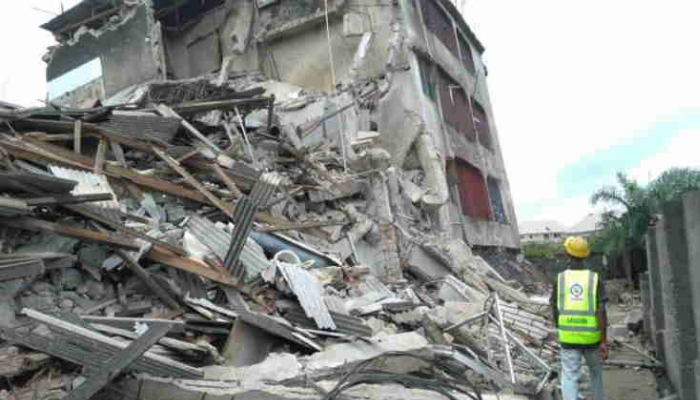Building collapse: How professionals can prevent incidents

Besides the failure of regulatory authorities to ensure compliance to permits and approvals, negligence or non-involvement of professionals in building and construction process is a major cause of building collapse incidents in Nigeria.
Other causes include an influx of substandard building materials into the market-leading to incessant complaints and defects in buildings, non-implementation of the National Building Code, soil investigation not carried out, and use of wrong foundation type on varying soils.
Among the seven key professionals in the built environment, Architects and Engineers—structural, mechanical and electrical—are critical. But a third one whose role is often silent or neglected to a great disadvantage is the estate surveyor.
Experts say that the successful completion of any building depends on a lot of key factors, few of which are as important as the relationship of all professionals involved in the process.
“In most cases, the estate surveyor acts as a consultant to the client (property owner), meaning that he or she acts as an intermediary between other professionals and the client until the final two stages in construction which are the disposition and maintenance stage,” Olayinka Omotosho, a Fellow of the Royal Institution of Chartered Surveyors (RICS), explained to BusinessDay
He explained further that, since the activities in terminal stages of a building project is a role an estate surveyor occupies, his effectiveness in this role would be dependent on the quality of work done in the preceding stages, adding that it is important that he is well-grounded in those stages to enforce a quality that will be required in attaining the client’s end goal.
Read also: Ikoyi building collapse: One incident too many
The pre-construction stage in the life of a building involves establishing a performance model for the building, and Omotosho said it was an essential pre-requisite for the proper and effective management of that building, including its maintenance.
According to him, the model benchmarks the performance upon which the building can be measured, adding that it also acts as a working standard indicating the attitude to be adopted throughout the construction stage.
“An architect without the guidance and direction of a maintenance expert trades functionality for aesthetic. Buildings that are designed without the maintenance implication in mind suffer functional defect from the start,” he noted.
To avoid this, an estate surveyor should work hand in hand with the architect by communicating the future maintenance consequence of building design to the architect. This helps the architect integrate maintenance implications into his design.
In the actual construction and procurement, Omotosho advised that since the materials used during construction are usually not purchased or supplied at once, a standard benchmarking needs to be done. This involves identifying, at the early stages, the most appropriate procurement system to be adopted through the construction phase.
“The estate surveyor and valuer ensures that only approved materials are used as component input used in the construction. A compromise in the standard affects the fabrics and component maintenance requirement in future,” he said.
“Through experience, an estate surveyor can enforce some specifications during construction in order to avoid future maintenance issues. For example, the depth and width of a roof gutter, when a flat roof type is used, can be specified by him. Basic knowledge of experienced maintenance issues in the field can also be very useful during the construction phase,” he added.
As another way of preventing building collapse, MKO Balogun, CEO, Global PFI, recommended in an interview with BusinessDay that there should be a coming-together of all building professionals to ensure approvals are adhered to and also to certify every stage of a building project.
That way, he explained, it would be easy to know when a developer is cutting corners or compromising on regulatory permits and approvals.
Omotosho added that qualified builders or contractors should be appointed for building projects, stressing that there should be adequate supervision by the architect and engineer throughout the construction period.









